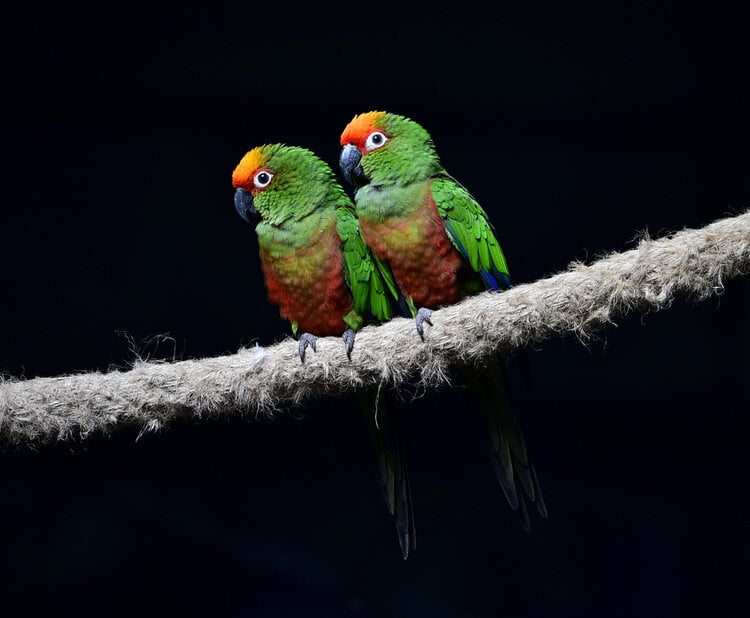TBCn_DD4Go17.jpg)
The Golden-capped or Golden-headed Conure shown here is only about four months old!
 True to the characteristics of most conures, the Golden-capped conure shown here has an incredible personality! He likes everybody who talks to him or holds him. He just went to his new home, and his new family has children, young adults, adults and grandparents. He loves all of them!
For more information about the care of Conures see:
Guide to a Happy, Healthy Conure
- Kingdom: Animalia
- Phylum: Chordata
- Class: Aves
- Order: Psittaciformes
- Family: Psittacidae
- Genus: Aratinga
- Species: auricapilla aurifrons
Scientific name:
Subspecies:
- Golden-capped Conure
Aratinga auricapilla auricapilla - Golden-fronted Conure
Aratinga auricapilla aurifrons
Distribution:
These birds are native to southeastern Brazil (Bahia).
Description:
The bird is mainly dark green with a front of the crown yellow or dark red. The back of the head and neck are a yellowish light green.
Size – Weight:
These birds get up to 11.8 inches (30 cm) and weigh 5.3 ozs. (150 g).
Care and feeding:
A roomy cage is required unless the bird is to be let out for extended periods. Many birds can spend most of their time on a play pen or parrot perch. They eat a variety of seeds, nuts, fruits, and commercial pellets, as well as the same nutritional foods humans eat.
See About Conures: Housing and About Conures: Care and Feeding for more information.
Social Behaviors:
These birds make a very warm and friendly pet. Great for people of all ages.
Breeding/Reproduction:
These birds breed easily in captivity. A young hen usually only lays 2 eggs, and the clutch gets bigger as she ages. Eventually the hen will lay 3 to 5 eggs, which hatch in 25 days. The best breeding box is a deep nest box, 41″ x 9″x 6.3″.
Potential Problems:
As with many Aratinga species, Golden-capped Conures can be noisy, though not nearly as noisy as most Aratinga species.
See About Conures: Potential Problems for more information.
Availability:
This bird is generally available. Your best bet is to find one at a pet store or reputable breeder.
Activities:
Loves to climb and play. Provide lots of toys.
Featured Image Credit: Wang LiQiang, Shutterstock
